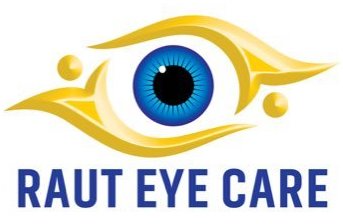The human eye is an intricate masterpiece of biological engineering, enabling us to perceive the world around us. One of the most crucial components of this visual system is the retina—a thin layer of tissue located at the back of the eye that captures light and converts it into neural signals that are sent to the brain for processing. However, various retinal conditions and disorders can compromise this delicate structure, leading to impaired vision or even blindness. Thanks to advancements in medical technology, retina lasers have emerged as a groundbreaking tool in the field of ophthalmology, aiding in the diagnosis and treatment of retinal issues through an array of innovative surgeries.
Understanding Retina Lasers:
Retina lasers, also known as photocoagulation lasers, work on the principle of selective photothermolysis. This technique involves delivering precisely controlled bursts of light energy to targeted areas of the retina. The energy is absorbed by the pigmented cells in the retina, creating localized heat that seals leaking blood vessels, destroys abnormal tissue growth, and forms scar tissue to stabilize retinal detachments.
Applications of Retina Lasers:
Diabetic Retinopathy Treatment: Diabetic retinopathy, a common complication of diabetes, results in damaged blood vessels in the retina that can lead to vision loss. Retina lasers are often employed to treat this condition by sealing off these leaking blood vessels, preventing further damage.
Retinal Tears and Detachments: Retinal tears and detachments can be repaired using laser technology. By creating adhesions between the retina and the underlying tissue, lasers help reattach the retina and restore proper function.
Macular Degeneration: Age-related macular degeneration (AMD) affects the central vision and is a leading cause of vision loss in the elderly. In some cases, lasers can be used to target abnormal blood vessels that contribute to AMD, halting their growth and preserving vision.
Evolution of Retina Surgeries:
Laser Photocoagulation: Early laser treatments, such as photocoagulation, utilized argon lasers to seal leaking blood vessels in diabetic retinopathy and prevent retinal detachment. While effective, this method had limitations due to its inability to treat certain conditions that required more precise targeting.
Photodynamic Therapy: Photodynamic therapy (PDT) emerged as an alternative approach to treating AMD. It involves administering a light-sensitive drug intravenously and then activating it with a laser, effectively destroying abnormal blood vessels while sparing healthy tissue.
Vitrectomy: In cases where laser treatment alone is insufficient, vitrectomy surgeries are performed. During a vitrectomy, the vitreous gel inside the eye is removed, allowing surgeons to access the retina directly and address complex issues like severe retinal detachments or macular puckers.
Microincisional Surgery: Advancements in surgical techniques have led to microincisional vitrectomies, where tiny instruments are used through minimal incisions. This reduces trauma to the eye and accelerates recovery times.
Gene Therapies: Cutting-edge research is exploring gene therapies that aim to replace or repair faulty genes responsible for inherited retinal disorders. These therapies have the potential to revolutionize how we approach previously untreatable conditions.
The Future of Retina Surgeries:
As technology continues to evolve, the future of retina surgeries holds promise for even more precise and effective treatments. Advanced imaging techniques, such as optical coherence tomography (OCT), enable surgeons to visualize the retina in unprecedented detail, aiding in accurate diagnosis and treatment planning. Additionally, gene editing techniques like CRISPR-Cas9 could potentially lead to tailored treatments for genetic retinal diseases.
In conclusion, retina lasers have transformed the landscape of ophthalmology by providing targeted, minimally invasive treatments for a range of retinal disorders. As our understanding of the eye's biology deepens and technology advances, retina surgeries are becoming increasingly sophisticated and effective. The collaboration between medical professionals, researchers, and technology experts is paving the way for a brighter future where vision restoration becomes a reality for more individuals affected by retinal conditions.


